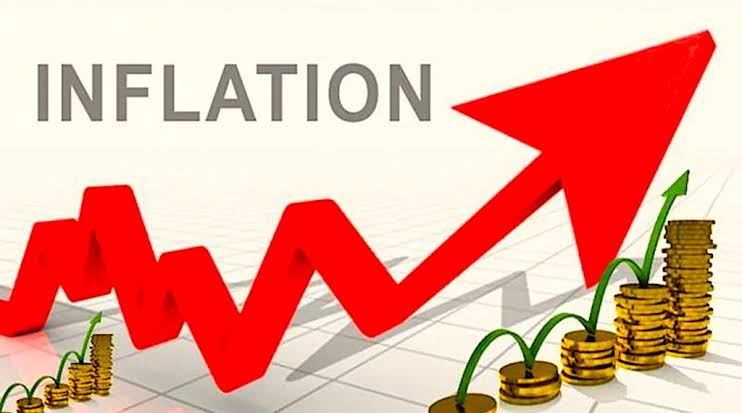Nigeria’s inflation rate increases to 34.60% in November — NBS

BY NEWS DESK, DECEMBER 17, 2024 | 11:58 AM
The National Bureau of Statistics, NBS, reported Nigeria’s headline inflation rate rose to 34.60 per cent in November 2024, a 0.72 percentage point increase from October’s 33.88 per cent.
The NBS disclosed this in its Consumer Price Index, CPI, and Inflation Report for November, which was released in Abuja on Monday.
On a year-on-year basis, the headline inflation rate in November 2024 was 6.40 per cent higher than the 28.20 per cent recorded in November 2023.
The report also revealed that, on a month-on-month basis, the inflation rate for November 2024 was 2.63 per cent, which was slightly lower than the 2.64 per cent recorded in October.
The NBS attributed the increase in the headline inflation to rising prices in various sectors, including food and non-alcoholic beverages, housing, water, electricity, gas, clothing, transport, education, health, and other goods and services.
The average CPI for the 12 months ending November 2024 stood at 32.77 per cent, indicating an 8.76 per cent increase from the 24.01 per cent recorded in November 2023.
Food inflation in November 2024 rose to 39.93 per cent on a year-on-year basis, up from 32.84 per cent in November 2023.
The increase in food prices was attributed to higher costs of yam, rice, maize, and other staples, as well as vegetable oil, fats, and processed foods.
On a month-on-month basis, food inflation increased by 2.98 per cent, slightly up from the 2.93 per cent recorded in October 2024.
Core inflation, which excludes volatile agricultural produce and energy, stood at 28.75 per cent in November 2024, a 6.36 per cent increase from 22.38 per cent in the previous year.
The urban inflation rate in November 2024 was recorded at 37.10 per cent, up from 30.21 per cent in November 2023, while the rural inflation rate was 32.27 per cent, compared to 26.43 per cent in the same period last year.
On a month-on-month basis, the urban inflation rate increased to 2.77 per cent, while the rural inflation rate rose by 2.51 per cent.
State-level analysis revealed that Bauchi had the highest year-on-year inflation rate at 46.21 per cent, followed by Kebbi at 42.41 per cent, and Anambra at 40.48 per cent.
On the other hand, Delta, Benue, and Katsina recorded the slowest rises in inflation. Food inflation was highest in Sokoto at 51.30 per cent, with Yobe and Edo following closely.
Yobe also recorded the highest month-on-month food inflation at 6.52 per cent, while Borno, Adamawa, and Kogi had the slowest increases.
NAN
Appeal for support
Conflict Reporting is dangerous and risky. Our reporters constantly face life-threatening challenges, sometimes surviving ambushes, kidnap attempts and attacks by the whiskers as they travel and go into communities to get authentic and firsthand information. But we dare it every day, nonetheless, in order to keep you informed of the true situation of the victims, the trends in the conflicts and ultimately help in peace building processes. But these come at huge cost to us. We are therefore appealing to you to help our cause by donating to us through any of the following means. You can also donate working tools, which are even more primary to our work. We thank you sincerely as you help our cause.
Alternatively, you can also email us on
info@yen.ng or message us
via +234 803 931 7767


